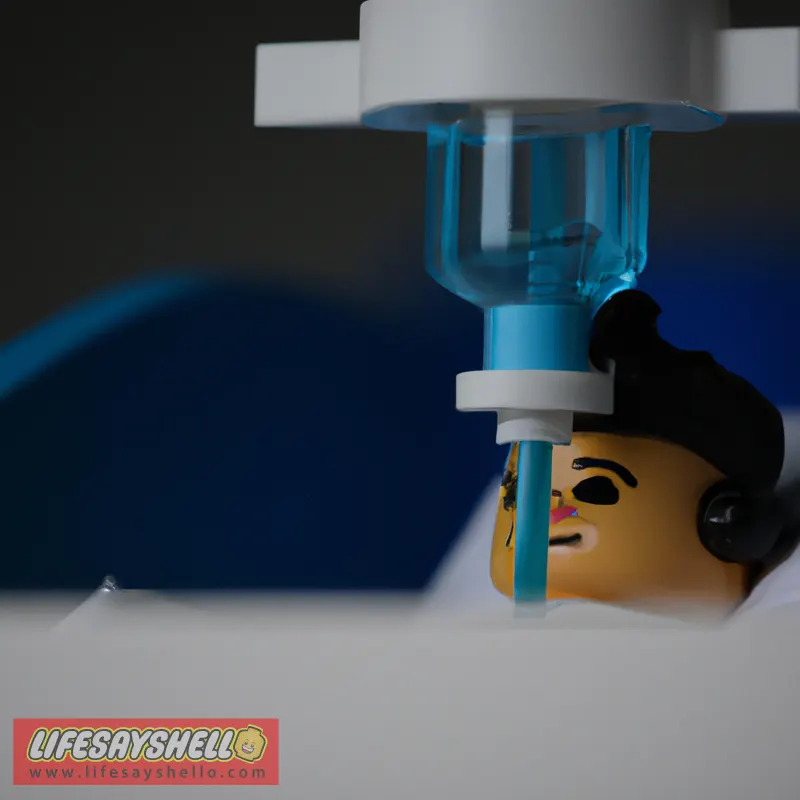Why is the Mental Health System in America Failing its Citizens?

Mental illness in America has reached crisis levels, with suicide rates rising and life expectancy dropping - clear signs that our mental healthcare system is failing us. In this in-depth article, we'll explore the key reasons why the mental health system in the U.S. is broken, look at the devastating consequences, and discuss potential solutions to this growing epidemic.
Nearly 1 in 5 American adults live with a mental illness. That's over 46 million people struggling with conditions like depression, anxiety, bipolar disorder, OCD, PTSD, and schizophrenia. And those numbers only represent diagnosed cases - experts believe the actual figures are much higher. Despite the skyrocketing need, our mental health system has huge gaps that prevent people from getting the care they desperately require.
The Root Causes Behind a Failing System
There are a number of complex factors that have led to the current mental health crisis in America. Let's break down the key reasons the system is failing us.
Lack of Access to Care
One of the biggest roadblocks to mental healthcare is lack of access. A study assessing Americans' current access revealed that despite high demand, the root issue is inability to find care. 76% of people reported difficulty getting mental health treatment. Limited options and long wait times are the norm. Our system simply does not have the capacity to serve all those who need help.
Insufficient Funding and Support
Many advocates argue that the government and health insurance companies are not providing nearly enough funding and support considering the scale of the mental health crisis. There has been a long-term lack of investment in the fragmented mental healthcare system at all levels of government. Critics say this neglect has severely hampered efforts to expand access and improve quality of care.
Siloed Practices
Another barrier is that primary care and mental healthcare often operate in total separation from each other. This makes it extremely difficult for patients to get coordinated care that addresses both their physical and mental health. Healthcare providers rarely collaborate or communicate about shared patients.
Payment and Administrative Restrictions
Insurer and government payment and administrative restrictions also thwart access to mental healthcare. Policies around reimbursement and coverage limitations mean that many people cannot afford the treatment they need. And convoluted approval processes create additional barriers.
Failure to Enforce Parity Act
In 2008, the Mental Health Parity Act was passed, requiring insurers to cover mental health conditions the same as physical conditions. However, lack of enforcement means coverage disparities still exist in reality. Insurers find loopholes to limit access to mental healthcare services.
Stigma and Criminalization
Mental illness carries heavy stigma in our society. And the criminalization of mental health symptoms has led to many people falling through the cracks rather than getting medical help. People struggling with psychiatric issues often end up imprisoned rather than hospitalized.
History of Institutionalization
The history of mental healthcare has been rocky at best. While deinstitutionalization was aimed at transitioning people into community-based care, those resources never materialized adequately. The consequences of empty promises around mental healthcare have been tragic.
The Devastating Consequences
Given all these gaps and failures, it's no wonder our mental health system is worsening faster than it's improving. Consider the following alarming statistics:
- Suicide rates have increased 33% since 1999
- Drug overdoses killed over 100,000 Americans in 2021
- Lifespan is decreasing for the first time in decades, linked to deaths of despair
- 70% of youth in the juvenile justice system have a diagnosable mental illness
- Over 11 million Americans have an unmet need for mental health treatment
These numbers paint a picture of a country in the grips of a mental health crisis. Lack of access to care, insufficient resources, and fragmented systems have created a perfect storm that is costing lives each day. It's clear our mental healthcare system is failing us with devastating consequences.
Potential Solutions to Repair a Broken System
With the mental health epidemic reaching emergency levels, turning this failing system around needs to become an urgent priority. Though the problems are complex, there are concrete solutions experts recommend:
Promote Mental Health Education
Widespread education campaigns can help increase awareness and reduce stigma around mental illness. Programs in schools and workplaces can teach mental health literacy.
Integrate Mental Healthcare into General System
Bridging the divide between mental and physical care can ensure coordinated treatment. Mental health expertise should be integrated into primary care clinics and hospitals.
Rethink Workforce Policies
Innovative policies around training, recruitment and retention are needed to address the severe shortage of mental health professionals. Scope of practice rules should be updated as well.
Expand Access to Proven Treatments
Evidence-based therapies like cognitive behavioral therapy and medication-assisted treatment must be made more available through increased funding and improved insurance coverage.
Add Frontline Screening in Primary Care
Screening processes to identify needs early, as well as frontline mental health practitioners in primary care clinics, can vastly improve access.
Develop New Solutions
We need fresh innovations tailored to the unique needs of groups like children, minorities, rural residents and the incarcerated. Tech-enabled treatment should be expanded as well.
Use Technology to Improve Care
Mobile apps, teletherapy, online peer support groups and other technologies have opened up new frontiers in mental healthcare and data collection. More research is needed to evaluate effectiveness.
Spotlight on the Most Vulnerable Groups
While the mental health crisis impacts Americans across all demographics, certain groups are especially vulnerable and their needs should be prioritized.
Children and Youth
Experts have sounded the alarm on the mental health crisis among America's youth. Rates of depression and suicide in children have skyrocketed over 30% in the past decade. Nearly 1 in 3 high school students reported persistent sadness or hopelessness in 2019.
Tragically, about 80% of kids who need mental healthcare do not receive it. Reasons include lack of early screening, shortage of child psychiatrists, and stigma from parents. Providing mental health resources in schools and pediatric offices is crucial. More counselors, trauma-informed training for teachers, and youth suicide prevention programs could help turn the tide.
Minorities
Mental health disparities exist for minorities, who often face barriers like lack of culturally competent care, language differences, stigma, and lack of insurance. For example, just 1 in 3 African Americans struggling with mental illness receive treatment. Anti-racism efforts, diversifying mental health professionals, and investing in accessible community-based services for minorities are important solutions.
Rural Residents
Rural areas have severe shortages of mental health professionals. Long distances to care centers and lack of public transport pose challenges. Telemedicine and training more rural primary care doctors in mental healthcare can help plug these gaps. Forgivable loans and scholarships can incentivize providers to work in underserved rural regions as well.
Incarcerated Individuals
America imprisons millions of people with mental illnesses that would be better served through treatment, not punishment. Correctional facilities often lack adequate mental health resources. Improving care during incarceration, increasing diversion programs, and investing in supportive housing and job placement for those released can help break the cycle of recidivism.
The Critical Role of Mental Health Advocacy
Effecting real change will require tireless advocacy from mental health organizations, coalitions, and individual citizens. Here are some key ways to get involved:
Contact elected officials to demand mental health reform. Town halls, petitions, rallies, and voting drives keep this issue top of mind for politicians.
Volunteer for mental health non-profits. They need help with everything from answering crisis lines to administrative work.
Share stories on social media to break stigma. Personal stories of struggling to access care or recover from mental illness can inspire others.
Support anti-discrimination policies like mental health days for employees and campus mental health services. Fight stigma whenever you encounter it.
Donate to organizations supporting mental health services, research, education, and advocacy.
Join an advocacy organization like NAMI or Mental Health America to raise your voice.
We all have power to drive change. Though the problems seem monumental, history shows that engaged citizens working together can overcome. There is too much suffering at stake to lose hope. With enough voices demanding reform, we can build a future where mental healthcare is no longer a privilege for the few, but a right for all.
Conclusion: We Must Act Now
In summary, America is experiencing a mental health crisis as our system fails to meet the needs of millions of people. Key factors like lack of access, insufficient resources, stigma, and fragmented care have created a perfect storm. The consequences in terms of lives lost and suffering are devastating.
To turn the tide, we must rally around implementing solutions focused on education, integrated care, workforce improvements, expanding access, innovation, and technology. There is no time to lose - we must act now to demand and support the drastic changes required to repair our broken mental healthcare system.
If we fail to act, the human toll will continue to climb. But if we can come together to drive reform, there is hope for creating a future where anyone who needs mental health treatment can readily access compassionate, effective, affordable care. A functioning mental healthcare system is not just a moral imperative - it's an investment in the health, safety and prosperity of our nation.
Join mental health advocacy groups, contact your elected officials, volunteer or donate to organizations addressing this crisis. We all have a role to play in creating an America where no one suffers due to lack of mental healthcare. The solutions exist - we must find the collective will to enact them. There are millions of lives depending on it.




Comments